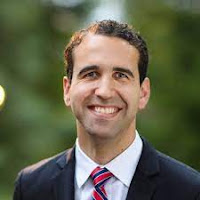Alex Schadenberg
Executive Director, Euthanasia Prevention Coalition
 |
| Brian Bird |
By next year, Canada may have journeyed — in only seven years — from a total prohibition on euthanasia to euthanasia at an adult’s deathbed to euthanasia for mental and physical illness at any moment of an adult’s life. The speed with which we have travelled on an issue of tectonic societal significance, and the territory we have covered, should raise questions about the wisdom of our approach. Advocates say it is progress. I worry it is a runaway train.Bird continues:
I believe that euthanasia, in any form, is the wrong choice for a society. It opens a Pandora’s box of risk. It also sends disturbing messages, teaching that human life is a depreciating asset with a “best before” date or that certain conditions are a “fate worse than death.” Human dignity — each person’s intrinsic worth and value — never disappears, no matter how dire the circumstances may be.Bird then responds to the issue of euthanasia for mental illness:
No court in Canada has held that the charter demands euthanasia for mental illness. I hope the courts never reach this conclusion. Apart from my skepticism that the right to “life, liberty, and security of the person” calls for euthanasia in any form, granting euthanasia to persons with mental illness would arguably violate this charter right. If a person’s mental illness inclines that person to suicidal ideation, does the government not jeopardize that person’s life by offering that person assisted suicide?Bird questions how euthanasia can be a "free choice" when palliative care is not readily available. He continues by challenging governments for forcing hospices to participate in euthanasia. He writes:
At times, euthanasia has even undermined access to palliative care. In British Columbia, a private hospice — a facility dedicated to caring for individuals nearing death — was shuttered last year after it conscientiously refused to offer euthanasia. Provincial authorities forced the hospice to close even after it proposed to operate without public funds, though it was reopened under direct public control.Bird concludes his article by encouraging our government to reject the expansion of euthanasia.
It’s one thing to legalize euthanasia. It’s another thing to coerce people to get on board with it or get out of health care. This totalitarian approach which assumes that every citizen supports euthanasia is unbecoming of a free and democratic society that features a range of views on this topic. And if there is any sector of society where freedom of conscience should be robust, health care is it. The interests at stake — life, death, human dignity — demand nothing less.
Despite the alarm bells, Canada may soon have one of the most permissive euthanasia laws in the world. Besides euthanasia for mental illness, the parliamentary committee currently at work is also exploring euthanasia for mature minors and allowing advance consent to euthanasia.
But our lawmakers can still reject any further expansion of euthanasia in this country. They need not think that the only way forward is making euthanasia more available to more Canadians. Hitting the brakes on euthanasia may be the increasingly unpopular choice. But it’s the right thing to do.
Article: Responding to the Special Joint Committee on Medical Assistance in Dying (Link).

.png)
No comments:
Post a Comment